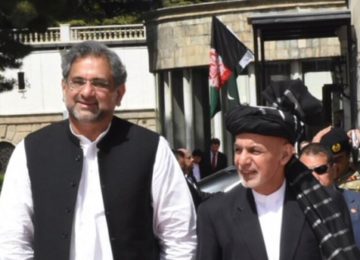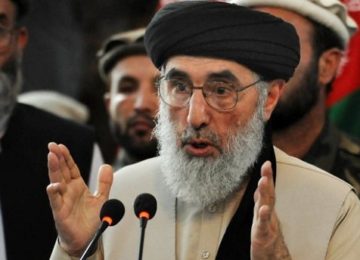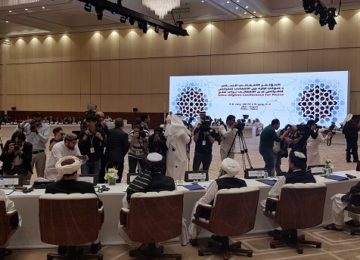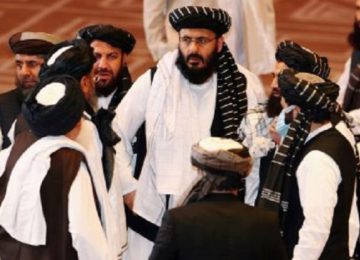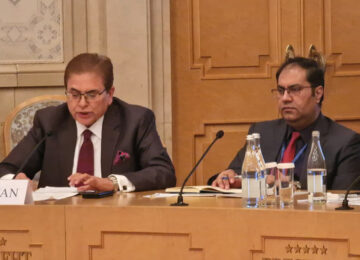The differences in the approaches of the US towards Afghanistan, India and Pakistan as part of the new strategy in Afghanistan and South Asia for 2017 have respectively led to three responses. The Kabul authorities had been expecting, and thus widely welcomed, the return of the United States. New Delhi was encouraged by the White House’s support for the further development of the strategic partnership project. Only Islamabad has criticized the US strategy. The biggest insult to Pakistan was the accusation by Donald Trump of its alleged provision of sanctuaries for terrorists.
Let us recall that for many years, Pakistan has been indirectly included in the management of the protracted conflict in Afghanistan, from where refugees, drugs and weapons flow. Islamabad believes that the civil war in Afghanistan, one side of which is supported by the United States, is destabilizing both the country and the region.
Since June 2014, Pakistani generals have been carrying out large-scale military operations aimed at destroying both foreign and local militias, both in the border zone of the Pashtun tribes in Afghanistan and in the interior of the country, particularly in the metropolitan area of Karachi and the Punjab province. As a result, by 2017, a large proportion of the militants had been “squeezed out” through Hindu Kush in Afghanistan.
At the same time, the federal army is actively engaged in the infrastructure development projects along the border line: Existing checkpoints have been strengthened, additional observation towers have been established, the boundary line has been fenced, and a visa regime has been introduced.
The recently announced “updated” US strategy in Afghanistan and South Asia clearly aims to compel Pakistan to do more in its view in the fight against terrorism. This includes diplomatic, military and financial components. US Secretary of State Rex W. Tillerson has stated that Pakistan has changed its status, and from now on, the US viewed Islamabad not as a non-bloc strategic ally, but simply as an ally. As stated by the State Department, sanctions are being planned to restrict the development of Pakistan’s nuclear program to “prevent the weapons of mass destruction from falling into the hands of militants.” In 2017, calls were already being made in Washington to declare Pakistan a “terror-sponsoring state.”
As early as the spring of 2017, the US denied Islamabad a funding of USD 350 million, accusing it of inadequate action in the anti-terrorist campaign.
Following its strategy in Afghanistan, Washington is forcing United States troops to carry out military strikes against terrorists in the interior and southern provinces of Afghanistan. The surviving militants are then squeezed out by the American coalition forces into the southern provinces, and further, across the Durand Line, into Pakistan. In the border areas of Pakistan, in and around the alleged places of shelter for terrorists, the United States is planning to conduct military operations with the support of air strikes of American drones.
Islamabad has given a symmetrical, comprehensive response to Washington’s latest accusations of providing sanctuary for terrorists without recognizing them, and has put forward a series of demands on the United States regarding Afghanistan, thus excluding India’s leading role in the region.
Pakistan has expressed its regret that the United States has ignored the huge number of victims (more than 60,000 killed and wounded), as well as the economic losses incurred, which are estimated at USD 123 billion. In spite of this, Islamabad has confirmed that it will continue its global efforts to combat terrorism, believing that this phenomenon is a threat to all the peoples of the world, and that it will not allow its territory to be used in a war against any country.
Islamabad connects the threat to peace and security to the conflict in Jammu and Kashmir that remains unresolved to date, which, in the view of Islamabad, is the main obstacle to peace and stability in the region.
In actuality, Pakistan defines its position on Afghanistan in the following manner:
– it stands in opposition to an exclusively military solution to the crisis in Afghanistan, stressing that the actions of the United States and the International Security Assistance Force between 2001 and 2014 did not result in peace;
– it calls for a political settlement, considering that only the Afghan-led political settlement process is entitled to leading the country to sustainable peace;
– it declares that the Kabul government must maintain dialog with the Taliban.
Islamabad expressed its readiness to cooperate with the international community in achieving the common goal of promoting peace and stability in the South Asian region. In the spring of 2017, it announced a draft settlement for Afghanistan. In August, military civilian authorities reaffirmed this, stressing, in addition to the importance of eliminating the shelters for the militias in Afghanistan, the need for border management, the return of Afghan refugees from Pakistan and the intensification of the peace process for a political settlement in Afghanistan by providing for the participation of the Taliban in the power structures.
The Parliament, the National Assembly (NA) and the Senate of Pakistan have condemned the “hostile and threatening” statements by United States President Donald Trump and General J. W. Nicholson, the commander of the United States troops in Afghanistan, and at the same time called upon the government of Pakistan to take the following steps, such as:
– the postponement of diplomatic visits between Washington and Islamabad. Representatives of the US administration will only be able to visit Pakistan with the express permission of the federal government;
– the suspension of cooperation with the United States, particularly in areas such as the provision of ground and air links through Pakistani territory;
– the return of all three million Afghan refugees to their homeland;
– the tightening of control over the border (“sealing of borders”) with Afghanistan; the demand for similar action by the Afghan authorities and the command of the United States forces.
At the same time, Islamabad expressed concern at the increase in the number of militants of the proscribed terrorist group Da’esh and a number of other terrorist groups (in particular DTP Tehrik-i-Taliban Pakistan, Jamaatul Ahrar and others) in the Afghan provinces bordering Pakistan, and demanded that Afghanistan, the United States and its allies close the borders for the leaders of the factions carrying out attacks against Pakistan.
The National Security Committee (NSC) of Pakistan, comprising of cabinet ministers and generals, called upon the Afghan authorities and the command of the United States military contingent in Afghanistan to immediately destroy the terrorist hideouts. The NSC stated that the militants who flee Pakistan freely relocate inside Afghanistan, and that the Afghan authorities are providing them with identification documents to facilitate their movement. From their places of shelter in Afghanistan, such terrorists are attacking border posts in Pakistan.
United States President Donald Trump’s course to isolate Pakistan in the region has proved to be a failure. It is not surprising, therefore, that following the American accusations on Pakistan harbouring terrorists, China and Saudi Arabia have approached the United States and the global community to recognize the contribution of Islamabad to the fight against terrorism.
Washington’s reproach against Islamabad has not accounted for the fact that, since 2016, Pakistan has been part of the Islamic Military Alliance (IMA), and Raheel Sharif, a retired Pakistani military general, has been heading the IMA since May 2017. Upon assuming office, Sharif declared his mission of ensuring protection and unity in the Muslim world. Thus, the command of the IMA coalition views the threat of the violation of the sovereignty and territorial integrity of one of the member states of the IMA as a military threat to the Muslim world.
Under these circumstances, the anti-Pakistan orientation of the US strategy in Afghanistan and South Asia is clearly appearing as hasty, taking into account, inter alia, the unofficial but nuclear status of Pakistan. In addition, in view of the development of the large-scale infrastructure projects by Islamabad since 2015 as part of the Silk Road Economic Belt, the implementation of which will increase the country’s GDP by 3 per cent (according to the calculations of Pakistani economists), Pakistan intends to firmly protect its country not only from regional and international aggressions, but also from the accusations being levelled against it of providing sanctuaries to terrorists.
Natalia Zamarayeva, Ph.D (History), Senior Research Fellow, Pakistan section, Institute of Oriental Studies of the Russian Academy of Sciences.
This article was originally published by New Eastern Outlook. Original link.




